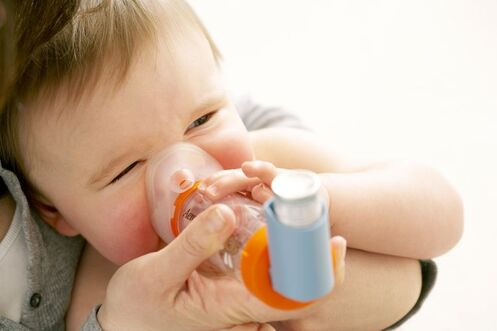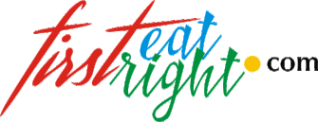 Asthma Starts in Kids Mostly before the Age of Five Asthma Starts in Kids Mostly before the Age of Five Every woman loves to be in her best of health during pregnancy and childbirth to avoid complications and give birth to a healthy baby. Ensuring proper nutritional care during pregnancy is required for fetal growth and development and also has a greater impact on the future health of the child. Folic acid is an essential supplement that’s been prescribed to every woman in childbearing age to prevent the attack of neural tube defects during conception. While it is advisable to start on folic acid supplements well before conception it is indispensable to take it at least as soon as pregnancy is detected. The supplement seems to be extremely crucial for the good health of pregnant mothers but now we have contradictory studies showing that consuming these supplements increase the chances of asthma in infants. Asthma is a chronic respiratory disease that has topped the prevalence rates having more than 334 million patients worldwide. The bronchial tubes (airways) allow air to come in and go out of the lungs playing a critical role in respiration. Asthma affects this air passage as the airways become inflamed and swollen making it extremely difficult for movement of air thereby triggering symptoms such as wheezing, chest tightness, shortness of breath and coughing. Asthma in children affects the lives of millions of small kids who mostly develop this condition before the age of five. Childhood asthma stands as one of the top 10 chronic diseases for disability-adjusted life in these kids. There are different causes for this disease and most important of them include immune cells in the immune system that cause asthma, genes and environmental factors. Nutrition too seems to play a pivotal role in the development of asthma. Folic Acid Supplements During Pregnancy Folic acid is an essential B vitamin involved in the synthesis of nucleic acids, methylation of DNA and cell growth regulation. It is critical to uterine growth and development and just because the fetus grows in the utero there are high chances of suffering from insufficient folate levels that exist as the main cause for neural tube defects, retarded growth, cardiac defects and oral clefts. Intake of folic acid supplements during pregnancy is recommended and WHO recommends taking 400 mcg/d from the time of planning for pregnancy up to 12 weeks after conception. Some countries such as the United States have mandated folic acid fortification in foods. Despite such needs for including folate in your meals there have been concerns regarding its consequences in newborns and kids with respect to respiratory illness. We already have several research showing that high intake of methyl donors during pregnancy influences an offspring’s phenotype and this led to a critical research in which ties between prenatal folic acid supplements and risk of childhood respiratory diseases was analyzed through effects on the developing fetal immune system. There are some studies that show a direct link between increased risk of childhood asthma due to folate supplements and there are some others that have found an inverse association with folate levels during pregnancy while rest show no link between folic acid supplementation during early pregnancy and childhood asthma. Let’s look at different studies to understand how exactly the mechanism works. Tennessee Medicaid (TennCare) A cohort study of 104428 mother-child dyads enrolled in the TennCare was conducted where the mothers were between 15 and 44 years of age. These mothers were analyzed for folic acid supplementation exposure with the help of folic acid-containing prescriptions during pregnancy. 17% of women were categorized as unexposed as they did not fill a prenatal supplement, 10% were exposed to a supplement during the first trimester only while 28% and 45% were exposed only after the first trimester or in the first trimester and beyond that. Almost 99% women were given prescriptions recommending 1000 mcg/d of folic acid. Finally, 15% children were classified as having asthma during 4.5-6 years of age. 13% children born to women who did not fill a folic acid prescription suffered from asthma, 17% of kids whose mothers filled a prescription suffered from asthma, 17% children of mothers who filled a prescription in the first trimester were diagnosed with asthma, 13% children whose mothers filled prescriptions after the first trimester were diagnosed with asthma and 17% of those born to women who filled a prescription during the first trimester and beyond. Almost 20% increased chances of asthma were detected in kids born to women exposed to folic acid during the first trimester only or after the first trimester compared to those children born to women with no folic acid prescription. MOOSE Guidelines in Analyzing the Effect of Folic Acid Supplementations on Asthma Risk in Infants The meta-analysis followed the guidelines of the Meta-analysis of the Observational Studies in Epidemiology (MOOSE). Those studies that were a cohort study, peer-reviewed original research and those that provided risk estimates of asthma associated with maternal folate intake or concentration during pregnancy were considered. Odds ratio (OR), prevalence rates (PRs) or relative risks (RRs) with 95% confidence intervals (95% CIs) were included for meta-analysis. When the supplement was consumed at multiple intervals the research team considered the first trimester as this is the most critical part of DNA methylation during pregnancy. 10 studies were included in the analysis which consisted of 201,248 participants. Of the ten, five were related to total folic acid intake from diet and supplements and the other five was related to supplemental folate intake. There was a significant increase in folic acid intake in Europe and North America. Folate intake from supplements increased the risk of asthma. There were several studies performed linking folate intake and asthma in kids but most of them could not come to significant conclusions. Certain other studies did show a true link between folate intake and asthma risk. While meta-analysis does show that maternal folate intake during pregnancy increased the risk of infant asthma dose-response analysis showed a link between maternal folic acid intake and risk of infant asthma. Mother & Child Cohort Study (MoBa) This study tried to understand the relationship between maternal total folate intake during pregnancy and asthma in MoBa children who have reached 7 years of age, an age at which diagnosis for asthma is more reliable than at preschool age. The study was conducted on 95,248 mothers and 114,761 children. Total folate intake included food folate and folic acid from supplements and maternal plasma folate concentrations were measured around 18 weeks of gestation. Almost 4.8% children aged around 7 years suffered from asthma and children born to women in the highest versus lowest quintile of total folate intake during pregnancy had more frequent asthma. Children born to mothers in the highest versus lowest quintile had a 20% increased risk of asthma. Hence, risk of asthma was only found in the highest quintile of intake in which women consumed a folate-rich diet. Effects of Consuming Folic Acid During Late Pregnancy Restricting growth in the womb resulted in lower birth weight and this had protective effect against childhood allergies. Australian researchers studied lambs born to three groups of sheep: 1. Mothers had a smaller-than-normal placenta (restricted) 2. Mothers with a smaller placenta who were given high doses of supplements that included folic acid in the last month of gestation (restricted supplement) 3. Mothers with normal placenta and normal diet (control) The researchers tested the lambs for inflammation and skin reactions. The restricted group had higher levels of inflammation but no difference in skin reaction than the restricted supplement and control groups when exposed to dust mites. On exposure to egg white protein the restricted supplement and control group showed higher rates of allergic reactions than the restricted group. Such differences in response show that folate supplements reduced protection that was earlier linked to pregnancies with restricted growth. Patients should also be made aware of the consequences of increased allergic reactions that might follow continuing the folic acid supplementation. References Maternal folic acid supplementation during pregnancy and early childhood asthma: https://www.ncbi.nlm.nih.gov/pmc/articles/PMC4900760/ Association of maternal folate intake during pregnancy with infant asthma risk: https://www.nature.com/articles/s41598-019-44794-z#Tab1 Maternal folate intake during pregnancy and childhood asthma in a population-based cohort: https://www.atsjournals.org/doi/pdf/10.1164/rccm.201604-0788OC Taking folic acid in late pregnancy might increase childhood allergy risk: https://www.sciencedaily.com/releases/2017/12/171221123158.htm Comments are closed.
|
AVOID FRAUD. EAT SMART+91 7846 800 800
|
- Home
- Written Testimonials
- Consult
- Clinics
- Blogs
-
Diet & Nutrition
- Diabetes Reversal
- IVF IUI not needed for PCOS PCOD Infertility
-
Medical Nutrition
>
-
Disease & Conditions
>
- Infertility | PCOS
- Diabetes Mellitus
- Cholesterol
- Hypothyroid
- Kidney Problems
- Hypertension
- Cardiovascular Diseases
- Liver Diseases
- Gastro intestinal disorder
- Cancer
- Metabolic Disorders
- Orthopedic Disorders
- Eating Disorders
- Dietary Recall
- Weight Record Filled By Clients
- Online Payment Transaction Details
- Online Clients Weight Check Form
- Our Program Package Service Charges
- Weight Record 2017 Clients
- Measurements sent by Clients
- Terms & Conditions Of Payment
- Thanks. Your Form is Submitted
- Video Testimonials
- Lifestyle & Wellness
- Lifestyle & Wellness Blog
- Allergy & Intolerance
- Weight Loss / Gain
- Weight Loss / Slimming Blog
-
Disease & Conditions
>
- Life Cycle Nutrition >
- Sports Nutrition >
- Integrity in Nutrition
- Knowledge Centre
© COPYRIGHT 2022. ALL RIGHTS RESERVED. FRST HEALTHCARE PVT LTD.
Dr. Nafeesa Imteyaz of First Eat Right clinic, is the Best Dietitian Nutritionist in Bangalore. Best Dietitian Nutritionist in Pune. Best Dietitian Nutritionist in Hyderabad. Best Dietitian Nutritionist in Chennai. Best Dietitian Nutritionist in Mumbai. Best Dietitian Nutritionist in Delhi. Best Dietitian Nutritionist in Kolkata.



